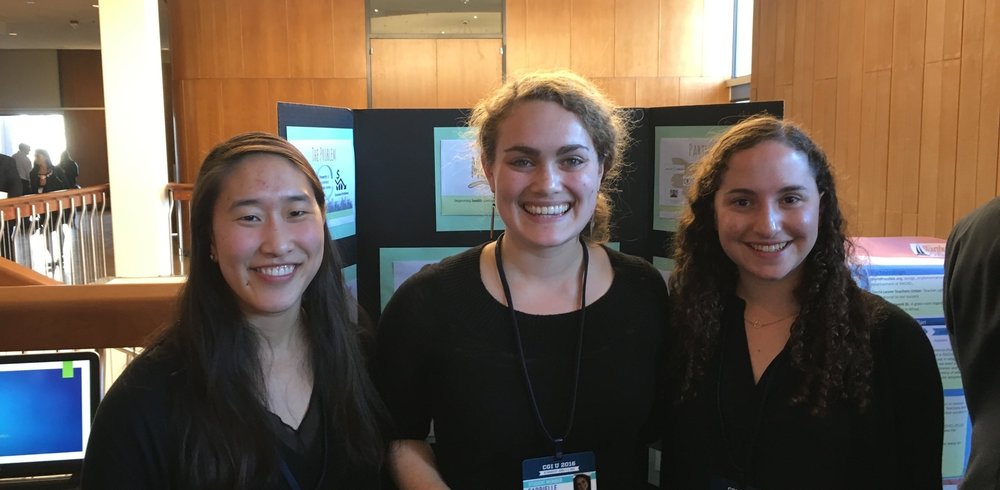Interview with Gabrielle Wimer, MealFlour cofounder
There’s an interesting story behind every relation between a westener and edible insects. Tell us yours
All three of us co-founders are adventurous eaters and have tried insects in different places: Gabrielle ate crickets when she visited Vietnam, Elizabeth first ate insects in Arizona where she tried a scorpion lollipop, and Joyce’s hometown of Athens (Georgia) has a large entomophagy community so she grew up going to events about edible insects. Once we started learning more about the environmental benefits of edible insects we became even more interested in them and passionate about promoting their use.
What’s the MealFlour project?
MealFlour is a social enterprise that improves nutrition through the sustainable farming of protein-rich mealworms. We teach communities about mealworm farming and how to turn mealworms into a protein rich powder, then we work with the participants to design farms based on the materials readily available to them. We continue to provide guidance after the initial trainings are over to ensure that communities can grow their own sustainable source of protein as well as increase their income through the sale of excess flour.
Why in Guatemala?
Joyce was working with a nutrition program in Quetzaltenango, Guatemala in the summer of 2015, so she knew first hand how pervasive malnutrition is here. According to the World Food Programme, Guatemala has the 4th highest rate of chronic malnutrition in the world. When we had the idea for MealFlour we decided that we should go where the need is. We were also talking to other NGO’s who are working on similar issues of health and economic empowerment with communities here in the western highlands, and they were excited about the program. Being able to establish partnerships with organizations that already had experience working in Guatemala was another big reason that we decided to run MealFlour here.
How is the community responding?
Really well! We are doing our full training program in one community called Candelaria, where we have 5 participants who are incredibly excited to have started their own mealworm farms. The mothers are excited to soon be able to produce their own sustainable source of protein, and when we do our home visits, a lot of the children are happy to tell us that they have been helping with the farm as well. In addition to our work in Candelaria we have done a train-the-trainer program, where we provide student teachers from around Guatemala with an introduction to mealworm farming. ⅔ of these students want to participate in the full MealFlour training program so that they can build their own mealworm farm and teach other people in their community about it. And just this week, we presented our program to another community and we we will begin trainings there in early 2017.
Where do you get your insects from?
Mealworms are indigenous to Guatemala and a lot of pet stores here grow them as feed for reptiles.We’ve gotten our initial supply of 15,000 mealworms from these pet stores, but moving forward we hope that we can give all of the program participants a starter pack from our own stock. We also hope that as interest grows in our partner communities, people will start giving some of their mealworm stock to friends and neighbors so that they can build mealworm farms too.
What’s the consumers average perception about edible insects in Guatemala?
Edible insects are very common in some parts of Guatemala. In the north, flying ants called “sompopos” are popular. Where we are currently working in Quetzaltenango there isn’t really a culture of edible insects, but because chronic malnutrition is such a large problem, and meat is so expensive, we’ve had a very positive response to edible insects. We also think it helps that all of our introductory trainings end with a taste test of either mealworm cookies, or banana mealworm pancakes, which are delicious and full of protein.
What do you think about industrial-scale edible insects breeding and processing?
We definitely think that the industrial-scale production of edible insects is key to having society move away from livestock and towards more sustainable sources of protein. At MealFlour though, we’re really focused on areas where chronic malnutrition and protein deficiency are big problems, and that is most often in underserved communities where there isn’t always the infrastructure to grow and distribute insects on an industrial scale. That’s why we focus on teaching people how to do it in their homes, that way, even if they live in a rural area, a slum, or a refugee camp, they can grow their own sustainable source of protein, and hopefully have enough to sell to other people in their community as well.






